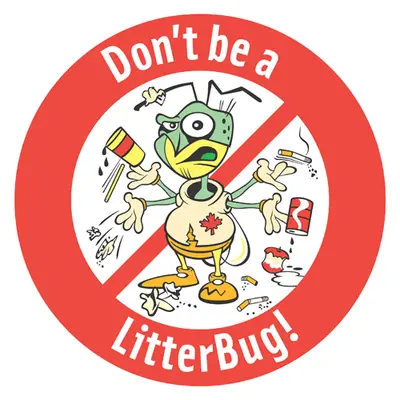Trash talking for true, unobstructed driving
 |
By Maureen McDonald
Senior Editor
Michigan Bureau
The Auto Channel
DETROIT - January 22, 2019: Amid the onerous government shutdown, the environment becomes one of the biggest victims, with the least voice to say “enough.” Tourists from all over the country are descending on Joshua Tree National Park and leaving tons of trash behind.
Forty-year-old Sabra Purdy, who co-owns a rock-climbing guide service, Cliffhanger Guides, outside the park in the town of Joshua Tree, is among dozens of volunteers collecting garbage while the park rangers and janitors are furloughed. She told the Washington Post, “People are doing this because we love this place and we know how trashed it’ll get if we don’t,” she said.
Throughout America volunteers come with rubber gloves, pick up grabbers and trash bags to restore the beauty of the landscape but as soon as one day’s discards are gone, another mound arrives. My neighbor Jeff Lygon picks at least three bags a day from streets surrounding his house, the church across the street and the next-door nature preserve.
Armed with plastic gloves, a mechanical grabber and a bunch of trash bags he finds half-eaten Happy Meals, spent condoms, underwear, horny goat weed, vodka bottles, soiled diapers and fast food wrappers. He watches patrons blast out of Sunday services at the nearby church, tossing bottles out as they roll and day workers for a nearby janitorial service drop remains of dinner just past his driveway.
“No matter how many bags I pick up today, there will be more waiting tomorrow,” Lygon says. He services on the city arts commission and sees neighborhood beautification as an expression of art. “I like to live in a clean space.”
I followed a woman whose son dropped a half-full bottle of water on the street in front of me. Before she turned the corner, I asked her to pick it up. “How dare you. My son can do what he pleases. I should kill you. That’s it. I should kill you. Stay out of people’s business,” she warned and roared off in her Mercedes Benz. It shook me up, but I still yell at people who litter. I’d hurl some of the trash back, but then I’d really be in trouble.
Some folks are hoarders who junk up their vehicles as well as toss the excess. Others want a pristine car and a junk-filled environment. I suppose the drivers zooming through Joshua Tree National Park figure they are feeding the bears and wildlife by leaving trash strewn around. But the bears could attack at any time and it wouldn’t be a happy meal. This is more than an American anomaly. The Guardian.com profiled Stan Stone in March 2008, finding he picked up 550 sackfuls of trash a year. Along one mile of country lane in Gloucestershire on one day he picked up 40 drink cans, 30 plastic bottles, 15 remnants of fast food and up to 20 chocolate bar wrappers. Stone finds an empty vodka bottle in the hedge near his house almost daily. He assumes the vehicle driver is a closet drinker concealing his habit from his partner – but not from the hedges that take the abuse.
The trash problem could be far worse. We can thank Lady Bird Johnson. In 1965 she lobbied vigorously for passage of the Highway Beautification Act, leading to discussions around the nation about litter. Some may remember the road signs, “Don’t Be a Litter Bug.” Fifty-some years later, highway departments organize civic groups, churches and corporate volunteers to adopt a segment of highway and free it from litter. Some communities use prisoners under strict supervision.
We must do more. The government shutdown will end, janitors will come back to work at national parks and government parking lots. But legislators can make a lasting difference for us all. Mount a Civilian Conservation Corps (CCC) not unlike the mighty force engaged during the Great Depression. People with bright vests would earn money picking up trash from highways and neighborhoods. Officers would visit driver education programs, pour out a day’s haul of trash from a neighborhood street and encourage new drivers to save their waste for receptacles.
Pristine highways and neighborhoods don’t happen by accident. If only our streets could be as clean as cars on display at the upcoming auto shows.
If we treasure the pleasure of driving, we must be responsible for how we comport ourselves behind the wheel.
https://twitter.com/friday_rick/status/1055041846487977989



